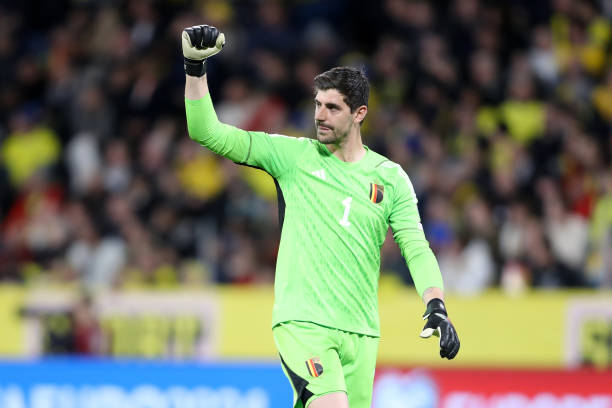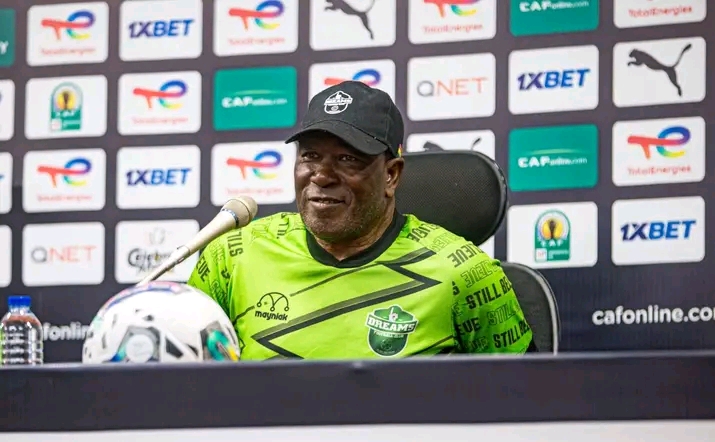Thibaut Courtois has announced his retirement from the Belgian national team. The decision, made public through Courtois’ social media channels on Thursday, stems from an unresolved disagreement with the team’s coach, Domenico Tedesco, marking a significant moment in Belgian football history.
Courtois, at 32 years of age and widely regarded as one of the world’s premier goalkeepers, leaves behind a legacy of over 100 caps for his nation. His departure comes at a crucial juncture for the Belgian team, which has struggled to maintain its previously lofty status in international rankings and competition performance.
The roots of this unexpected retirement can be traced back to a dispute that arose last year between Courtois and Tedesco. The disagreement ultimately led to Courtois’ exclusion from the Belgian squad for the European Championship, a decision that raised eyebrows across the football world. In his place, Koen Casteels was selected to guard the Belgian goal during the tournament, a change that signaled the depth of the rift between the star goalkeeper and the national team’s management.
In his retirement statement, Courtois struck a tone of both gratitude and regret. He expressed his deep appreciation for the opportunity to have represented Belgium on the international stage, stating, “I feel privileged to have had the honor of wearing the national jersey. Not even in my wildest dreams could I have imagined being able to do so more than 100 times.” This sentiment underscores the significance of his international career and the emotional weight of his decision to step away.
Courtois also took the time to acknowledge his own role in the circumstances leading to his retirement, accepting a share of responsibility for the situation. In a move that demonstrates professional integrity, he extended an apology to fans who might find themselves disappointed by his decision. However, he firmly stated his belief that this choice is in the best interest of the team moving forward, suggesting a desire to avoid any potential distractions or conflicts that might hinder Belgium’s performance.
The goalkeeper’s retirement comes at a time when the Belgian national team finds itself at a crossroads. After spending nearly three years at the pinnacle of world rankings and reaching the semi-finals of the 2018 World Cup, Belgium has experienced a noticeable decline in form and results. The team’s elimination by France in the last 16 of the recent European Championship has only intensified scrutiny on Tedesco’s tactical approaches and overall management of the squad.
Tedesco, who signed a contract extension prior to the start of the Euros, now faces increased pressure to justify his position and strategies. The departure of a player of Courtois’ caliber and experience only adds to the challenges facing the Belgian team as they look to rebuild and reclaim their position among football’s elite nations.
The controversy surrounding Courtois’ retirement raises broader questions about the dynamics between star players and coaching staff in modern international football. It highlights the delicate balance that must be struck between respecting player autonomy and maintaining coaching authority. As national teams increasingly rely on players who are global superstars at the club level, managing these relationships becomes ever more crucial to success.
For Belgium, the loss of Courtois represents more than just the departure of a skilled goalkeeper. His experience, leadership, and ability to perform under pressure have been key components of the national team’s success over the past decade. Finding a suitable replacement who can match Courtois’ quality and influence will be a significant challenge for Tedesco and the Belgian football association.
Looking ahead, the Belgian team must now navigate the complexities of this transition. The upcoming international fixtures will be closely watched to see how the team adapts to life without Courtois between the posts. It will also be interesting to observe any potential shifts in team dynamics or tactical approaches that may emerge in the wake of this significant change.
Courtois’ retirement also serves as a reminder of the intense pressures and scrutiny faced by top-level footballers in the international arena. The decision to step away from national team duties is never taken lightly, especially for a player who has been a cornerstone of his country’s footballing identity for so long.
As the football world digests this news, attention will inevitably turn to how this development might impact Real Madrid, Courtois’ club team. While his retirement from international duty may potentially extend his club career, it also removes the platform of international football as a stage for showcasing his talents on a global scale.
Thibaut Courtois’ retirement from the Belgian national team marks the end of an era in Belgian football. It highlights the complex interplay between individual players’ careers and national team dynamics, as well as the challenges faced by teams in managing high-profile talents. As Belgium looks to the future, the task of filling the void left by Courtois will be crucial in determining their success on the international stage. This development serves as a poignant reminder of the ever-evolving nature of international football and the difficult decisions that sometimes arise at the intersection of personal conviction and team loyalty.






